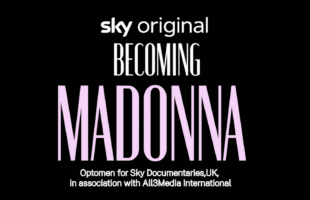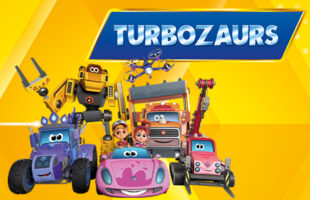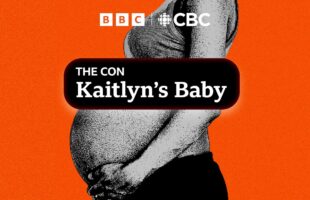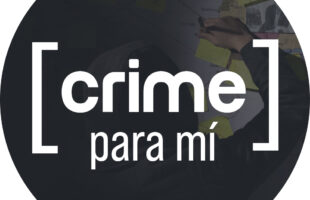In the past 12 months, Australia’s television industry has seen a vast shake-up, in fact there has not been as much corporate activity in the local media sector since the late 80s/early 90s when a flurry of overseas interest forced the government to make cross-media ownership laws to stop too much of the country’s media being swallowed up.
One of the key focuses of the recent corporate moves in the sector has been Consolidated Media Holdings, an organisation that is controlled by James Packer who has a 50.1% stake. ConsMedia represents what is left of Packer’s media interests and it owns a 25% share in pay- TV operator Foxtel and a 50% share in content provider FOX Sports. But Packer has made no secret of his aims to move out of the media sector, so beloved by his father Kerry Packer, and into the more profitable realm of gaming with his company Crown, which had a 53% profit jump in August to A$513.3 million – and now that seems to be about to come to fruition.
Packer offloaded the free-to-air Nine Network to a private equity firm five years ago and now it appears he is set to sell ConsMedia to Rupert Murdoch’s News Corp in a deal worth US$2 billion, which analysts believe will be used to grow his gaming interest both in Australia and abroad.
For Murdoch, the deal means he will have full ownership of FOX Sports giving him greater freedom to grow the brand which has had tough times of late and puts him in a good position to exert influence over Foxtel and use some of what he has learned at Britain’s BSkyB.
The deal recently got over the hurdle of being cleared by the Aussie regulator the Australian Competition and Consumer Commission (ACCC) that decided the deal would not produce any competition concerns. But the watchdog has yet to rule on a rival bid by Seven West Media, owned by billionaire Kerry Stokes, that includes free-to-air network Seven, the country’s top rating network.
But when ConsMedia reported an operating profit of A$97.9 million in August it also said it expected the News deal to be completed within six weeks, leaving little room for Seven to get a look in.
This will not please Stokes, who has long had his hopes of entering the lucrative Australian pay-TV market dashed, most publicly with the failure of his C7 sports channel with later spawned an unsuccessful lawsuit against Packer and Murdoch, this latest move will see the media mogul sidelined once again, though as he has a 24% interest in ConsMedia already, he will no doubt be involved in any takeover — though whether he can spoil will be determined. Meanwhile, in the “show within the show”, pay-TV operator Foxtel has recently completed its merger with fellow operator Austar. It was a friendly move that saw little resistance from the two companies as the two had always worked closely together. Austar provided the regional services while Foxtel serviced the cities and a merger brings obvious benefits for the two companies that have seen once-robust subscription numbers taper off. But there were concerns within the production industry and the ACCC that a merged entity would require less local content and be a barrier to any new pay-TV players entering the market, though ultimately they got their way.
“We believe the Foxtel-Austar transaction is a positive outcome for Foxtel and ConsMedia and the deal has happened at the opportune time given the slowing growth trajectory of pay television and increasing competition from free-to-air TV,” said media analyst Andrew Anagnostellis of Deutsche Bank.
Meanwhile, news continues to surface that the private equity firm CFC is keen to offload Packer’s Nine Network that they bought for a premium just ahead of the global financial crisis. There have been several potential suitors show up in the media from internet firm TPG to telco Telstra but Nine is suffering in the ratings and lagging in ad sales behind Seven, though August’s A$1 billion deal to retain the sporting rights to football code the NRL and State of Origin series should give the network a boost.
But Seven retains its ratings winnings form that will make it difficult to beat in the annual tally of eyeballs. The network has ratings hits like talent show X Factor, local drama Packed to the Rafters and a strong news line up. Nine has successfully rebooted Endemol’s Big Brother to solid million-plus viewer outings and had the expected success as the only official Olympic broadcaster though even this two-week blitz of the airwaves is not going to be enough to snare it ratings gold.
And, in a hit-and-miss year for productions, where Network Ten’s brave offering I Will Survive, a talent show based on the movie Priscilla, Queen of the Desert fell flat and dance show Everybody, Dance Now fronted by Ten chairman Lachlan Murdoch’s wife Sarah was axed after just a few outings, production companies are having a tougher-thanusual time touting product. Ten’s chief programmer David Mott fell on his sword on August 24 when he resigned with many believing that the network’s poor performance in 2012 was the reason for his departure, but Mott was a respected industry professional and despite recent duds, his skills will be missed at Ten, whose management – and previous management team – must share the blame for the network’s woes.
One fear for the production companies is that the Foxtel- Austar merger will reduce the options for local content pitches with pay-TV growing consistently in past years to be an important source of revenue for independent producers, though not all see it as a bad thing.
“There are too many people seeking to make content in this country for the size of this market anyway so if the merger leads to a consolidation of content providers then that is not necessarily a bad thing,” says John Gregory of Freehand Productions. “The fact that there might be fewer channels but they’re better positioned and better able to decide what programming they want to run overall for the Australian audience, then it’s a better outcome.”
But Petra Buchanan, head of pay-TV industry organisation ASTRA, says little will change with the merger. “In terms of investment and in terms of content, the channels are out there,” she says. “They are looking at who their audience is, being competitive, trying to reach the widest array of people and that is going to be the way irrespective of the platform shifts or changes.”
But there has already been some consolidating moves in the production area with the February merger of Cordell Jigsaw, makers of paybox hit Mega-Truckers, and Zapruder’s Other Films, which backs the Australian Broadcasting Corporation’s advertising-based hit panel show Gruen Transfer (and offshoots like the Olympic branding show Gruen Sweat).
Jigsaw’s Nick Murray said the move was to help the two companies compete with the format books and the international clout of Shine Australia, Endemol and FremantleMedia. But with even the big guys having their share of misses; Shine’s ratings juggernaut MasterChef Australia has struggled for the first time in its fourth series and FremantleMedia was behind I Will Survive, which has also fallen out of favour with audiences; it has been an uncertain year for TV hits with a public seemingly tiring of the rollout of reality TV, despite good early numbers for The Voice before a loss of interest and the revival of Big Brother to solid, if not exciting, figures. An Olympic year also means a month-long interruption to normal viewing patterns and the increasing use of catch-up services has taken some eyes away from the traditional channels.
Though one thing that is for certain is that the commercial television landscape Down Under will likely look very different this time next year.








